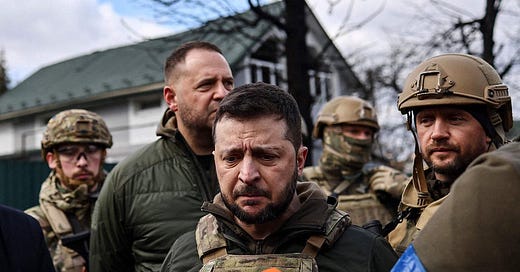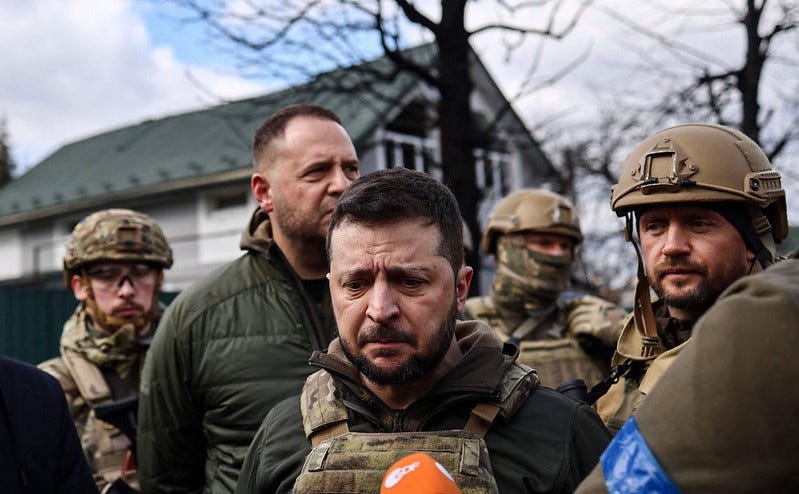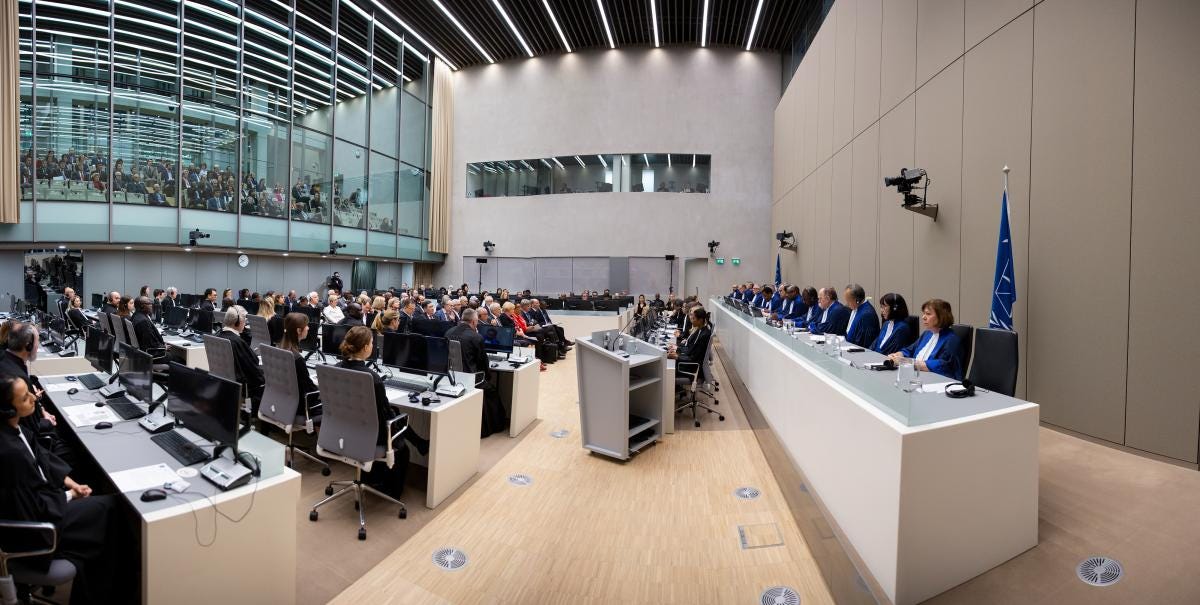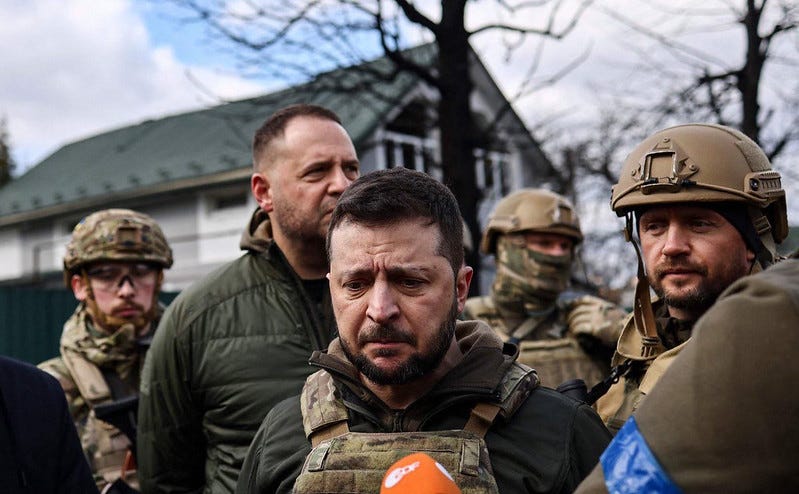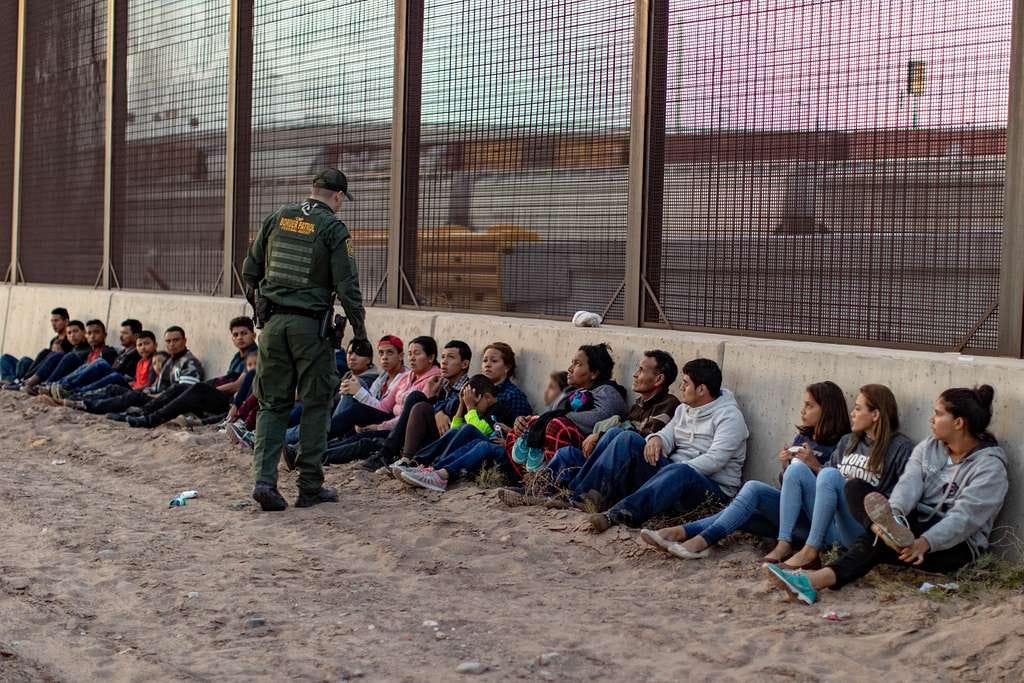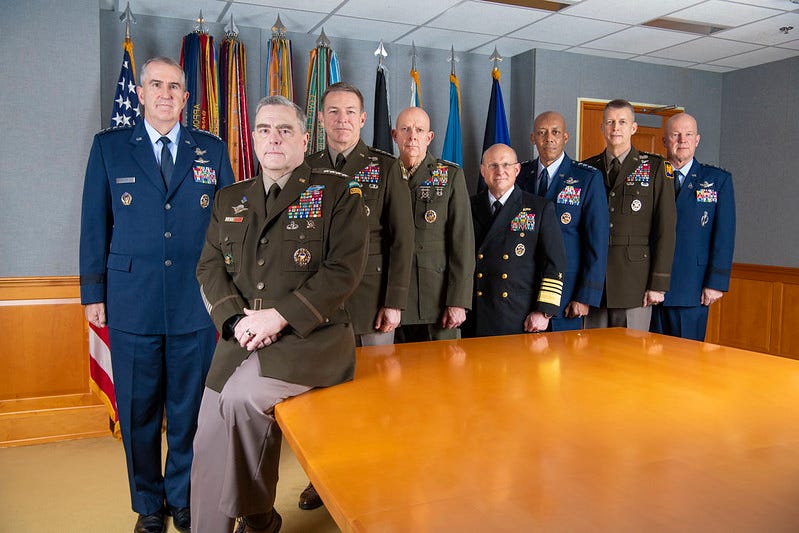by Gabe Fleisher
Good morning! It’s Wednesday, April 20, 2022. Election Day 2022 is 202 days away. Election Day 2024 is 930 days away.
About a month ago, I wrote a piece in this newsletter asking whether it was time to apply the label “genocide” to the atrocities being committed in Ukraine.
In the time since, reports from Bucha and other parts of Ukraine have only pressed that question more — and leaders from President Biden on down have begun asking it.
This morning, WUTP’s global contributor Miles Hession breaks down what exactly “genocide” means in the context of international law, how it differs from other categorizations like “war crimes” — and whether Russian president Vladimir Putin could be prosecuted for either of them.
Later down in the newsletter: I take reader questions on the presidential primary process, preview the day ahead in Washington, and give you a lighter story to start your morning.
But first, here’s Miles:
Could Putin be prosecuted?
By Miles Hession
Throughout the war in Ukraine, shocking reports have emerged of Russian soldiers deliberately targeting civilians and civilian centers, with particular horrific reports coming from Bucha, a suburb of Kyiv.
Last week, President Biden caused a stir when he declared that Russia was committing “genocide” against its neighbor, a statement that got ahead of the U.S. government and international community’s established processes for defining such atrocities.
But how exactly should Russian violence be categorized? And what can be done to prosecute it? In light of Biden’s statement, and Russia’s launch of a new offensive in eastern Ukraine that analysts say could be “worse than Bucha,” these are questions that are increasingly being asked across the globe.
The four categories to know
The body that has been established to deal with these wartime violations of international law is the International Criminal Court (ICC), located in The Hague, Netherlands.
The ICC came into force in 2002 following the ratification of the Rome Statute, which built off the work of the Geneva Conventions in establishing the rules of war.
The Rome Statute outlined four international crimes: Genocide, crimes against humanity, war crimes, and crimes of aggression.
— Genocide is the most difficult of these crimes to prove in the court. Not only must evidence be presented to show mass extermination of a particular group of people, “intent to destroy, in whole or in part, a national, ethnic, racial, or religious group,” must be proven as well.
While it is certain that atrocities are taking place in Ukraine, the necessity of intent creates a high burden of proof for conviction, but some evidence has begun to grow.
Russia state media has begun to target Ukrainian identity with calls for “de-Ukrainization,” arguing that Ukraine is an illegitimate state and that it cannot be retained. Additionally, if Ukraine’s claims are true that Russians are forcibly adopting Ukrainian children, this too would be a genocidal act.
Evidence is still emerging, though, and analysts remain divided over whether enough evidence for intent is there.
— Crimes against humanity are defined in the Rome Statute as “widespread or systematic attack(s) directed against any civilian population, with knowledge of the attack.”
They must be widespread in nature, but they do not require proof of intent, like a genocide does. The atrocities committed in Bucha, where huge numbers of civilians were slaughtered, are seen as particular fits for this category.
— War crimes can encompass crimes against humanity, but are specifically used used to describe attacks on individuals that violate the law for wartime behavior established by the Geneva Conventions.
Ukraine has opened up more than 5,600 investigations into war crimes committed by Russians during the war and other reports have already found Russia committed these crimes.
— Crimes of aggression is a category that has only recently fallen under the purview of the ICC, and looks at when a country or individual begins a war of aggression violating peace. Evidence for this is nearly insurmountable, as Russian president Vladimir Putin launched a well-documented troop-buildup and invasion against his peaceful neighbor.
So, will Russia be prosecuted?
The ICC has already launched an investigation into war crimes committed by Russia, but the likelihood of any meaningful prosecution taking place seems slim.
Neither Russia nor Ukraine — nor the U.S., for that matter — are signatories to the Rome Statute, meaning they are not party to the ICC. The court can only bring cases to trial that fall under their jurisdiction.
After Russia’s 2014 invasion of Crimea, however, Ukraine granted the ICC jurisdiction to investigate crimes in the country, which extends to today. This overcomes many barriers to creating a case that have been faced during past incidents, such as with Russian war crimes committed in Syria.
While there is precedent for trials of heads of state, the ICC does not try defendants who are not present in the court.
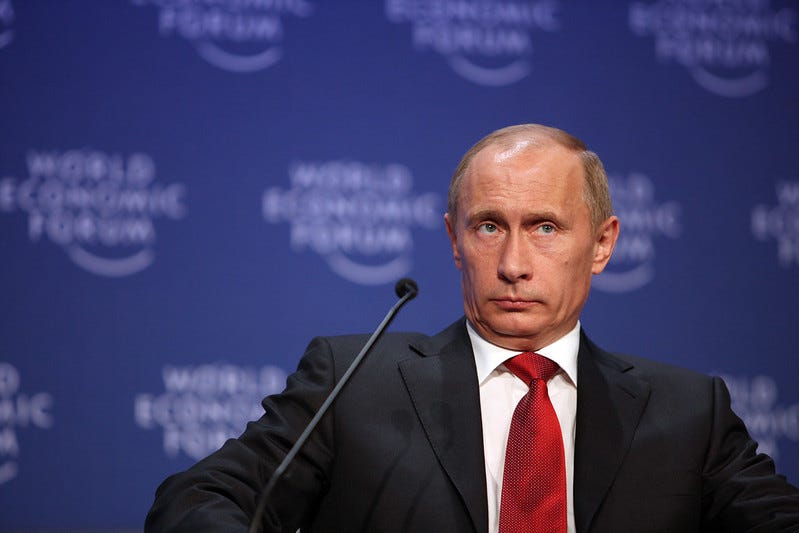
Trying Putin in The Hague, then, would require regime change in Russia that would allow for his extradition — not a prospect expected in the near future.
Perhaps that is why Putin has only grown more defiant as accusations of war crimes and genocide have mounted. Just this week, he even granted the military brigade accused of war crimes in Bucha with an honorary title.
The notoriously slow ICC will likely continue investigating the war — but Putin knows as well as anybody that the international tribunal has little room to take legal recourse against him.
Catch up
The other headlines you should know this morning.
Ukraine. President Biden confirmed to reporters on Tuesday that the U.S. is preparing to send additional security assistance to Ukraine; per CNN, another $800 million package is being prepped.
The prospect of new aid comes as Russia makes incremental gains in its eastern offensive and Ukraine’s commander in Mariupol says his forces are “facing our last days, if not hours.”
Masks. After a federal judge struck down the Biden administration’s mask mandate for public transit, the Justice Department said Tuesday that it would appeal the decision if the CDC says the mandate is still needed.
Asked about whether Americans should still wear masks on planes, Biden also struck a less definitive tone on Tuesday: “That’s up to them,” he said.
Immigration. According to Axios, Biden’s inner circle is considering delaying the repeal of Title 42, the Trump-era order that prevented migrants from seeking asylum in the U.S. due to the pandemic.
The context: Biden’s plan to end the order on May 23 has been met with backlash from top Democrats, especially those facing tough re-election araces this November.
Ask Gabe
Your questions, answered.
One of my favorite parts about writing Wake Up To Politics is hearing from my readers and being able to answer any questions you might have on the day’s news.
This morning, I’d like to highlight a few questions that came in response to last Thursday’s newsletter, which reported on the changes Democrats are making to their presidential primary process in 2024:
Q: I was surprised to read that Iowa and New Hampshire can make laws that prohibit other states from voting before them. How do they have that authority? — Lois G.
A: They don’t, really. It’s true that Iowa has a law on the books that requires its presidential caucus to come at least eight days before any other state’s contest. And New Hampshire has a similar statue requiring its primary to come seven days before any other primary.
But neither state really has the authority to make those laws and there isn’t anything they can do to enforce them. They’re purely symbolic.
The jurisdiction with the real authority here is the national party committees (the DNC and the RNC). They’ve gone along with Iowa and New Hampshire’s demands for decades and allowed them to be first — but if they wanted to stop tomorrow, that’s their prerogative.

Of course, the state parties could still hold early contests if they want, but then the national parties could respond by stripping them of their delegates at the nominating conventions. (This has happened before: in 2008, Democrats gave delegates from Florida and Michigan only half a vote each after the two states violated the established primary schedule.)
The parties could also go farther and prohibit candidates who campaign in the states by participating in primary debates; if no one campaigns in the states, they’d lose any influence in the process and likely be scared off from flouting party rules.
Q: Why not have all primaries on the same day? Wouldn’t that be most fair? — Linda L.
A: Back in 1913, Congress considered a bill that would have done just this: require the two parties to hold a national primary day, rather than spread their nominating processes out over six months of staggered contests.
The bill — sponsored by the senator from Iowa, ironically enough — was supported by President Woodrow Wilson, but it failed, as have more than 100 similar legislative efforts. In this era, it’s unlikely that Congress would weigh in on this type of thing, but the two parties could still institute national primaries, of course.
Why don’t they? The main arguments against a national primary are pretty similar to arguments against preferencing the popular vote over the Electoral College in general elections: candidates might not campaign in states like, well, Iowa or New Hampshire and instead skip right to the population-rich prizes like California, Florida, New York, and Texas.
While the current process forces candidates to spend time in smaller states along the way, this argument goes, a national primary would mean everyone would rush to the big states — which also have more expensive media markets, meaning candidates would need more funding (and probably more name ID) to compete.

Additionally, some argue that spreading out the primary process over time ensures more rigorous vetting of potential nominees, forcing them to campaign in primary after primary to gauge their endurance and allowing less established candidates to either catch fire (a la Barack Obama) or flame out (a la Pete Buttigeg) over time.
On the other hand, a national primary would ensure no state is preferenced over the others and would allow parties to simply choose their nominees on one day and start gearing up for the general. Like proponents of the general election popular vote, advocates for a national primary would also say it doesn’t matter that small states would be ignored: land doesn’t vote—people do, the refrain goes.
But here’s one idea that might be a happy median: Regional primaries. The states in each region (the Midwest, Northeast, etc.) could hold their own primary all together, so there aren’t so many individual contests but the concerns of different geographic areas are still heard. Then, this proposal says, the regions could rotate in how their primaries are ordered every cycle to ensure fairness in the scheduling.
Look ahead
How your leaders in Washington are spending their time today. (All times Eastern)
Biden’s day: Receiving his daily intelligence briefing (10:15 am); meeting with the Defense Secretary and other top military leaders (4 pm); having dinner with the First Lady, the military leaders, and their spouses (5:30 pm).
The dinner with the military chiefs is an annual presidential tradition. The invite list will include the Joint Chiefs of Staff (the heads of each branch of the military) and the Combatant Commanders (the officers overseeing the military’s 11 main command posts).
Also at the White House: Press secretary Jen Psaki will hold her daily briefing (3 pm).
At the Capitol: Both chambers of Congress are on recess this week.
At the Supreme Court: The justices will hear oral arguments (10 am) in Vega v. Tekoh, a lawsuit stemming from Los Angeles deputy sheriff Carlos Vega’s failure to read the Miranda warning (“You have the right to remain silent...”) to Terence Tekoh, a hospital worker accused of sexual assault.
Currently, statements from a defendant cannot be used against them in court if the Miranda warning wasn’t read to them first. But this case will decide whether a defendant (Tekoh) can also sue a police officer (Vega) for not reading them Miranda.
The federal appeals court in the case ruled in Tekoh’s favor, while the Biden administration has urged the justices to side with Vega.
Links to watch for yourself: WH briefing • SCOTUS arguments
Before I go...
Here’s something fun: I always like to learn little sneak peaks about the personal lives of politicians, and The Ringer delivered one this week in an interview with Vice President Kamala Harris — that focused solely on her Wordle habits.
Harris revealed that she plays every morning, always with the same starter word (“NOTES”) and said she’s gotten the correct word on her second guess six times (impressive).
“Wordle, for me, is like a brain cleanser,” Harris said, explaining that she often plays “in the middle of very long days” between meetings. “It’s really genius,” the VP said of the game’s once-a-day design.
The only downside? Harris’ Secret Service-approved phone doesn’t let her text anyone, so she can’t share her scores with friends and family.
For the record... Harris’ 100% win record is better than mine. I struck out on “FOYER” yesterday, after 101 games.
That’s it for today. If you enjoy Wake Up To Politics, it’s always appreciated if you donate to support the newsletter or buy some merch. Or if you tell your friends and family to sign up at wakeuptopolitics.com.
If you have any questions or feedback, feel free to email me: my inbox is always open.
Thanks for waking up to politics! Have a great day.
— Gabe


